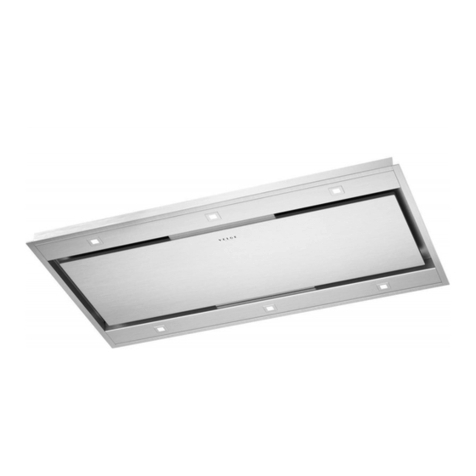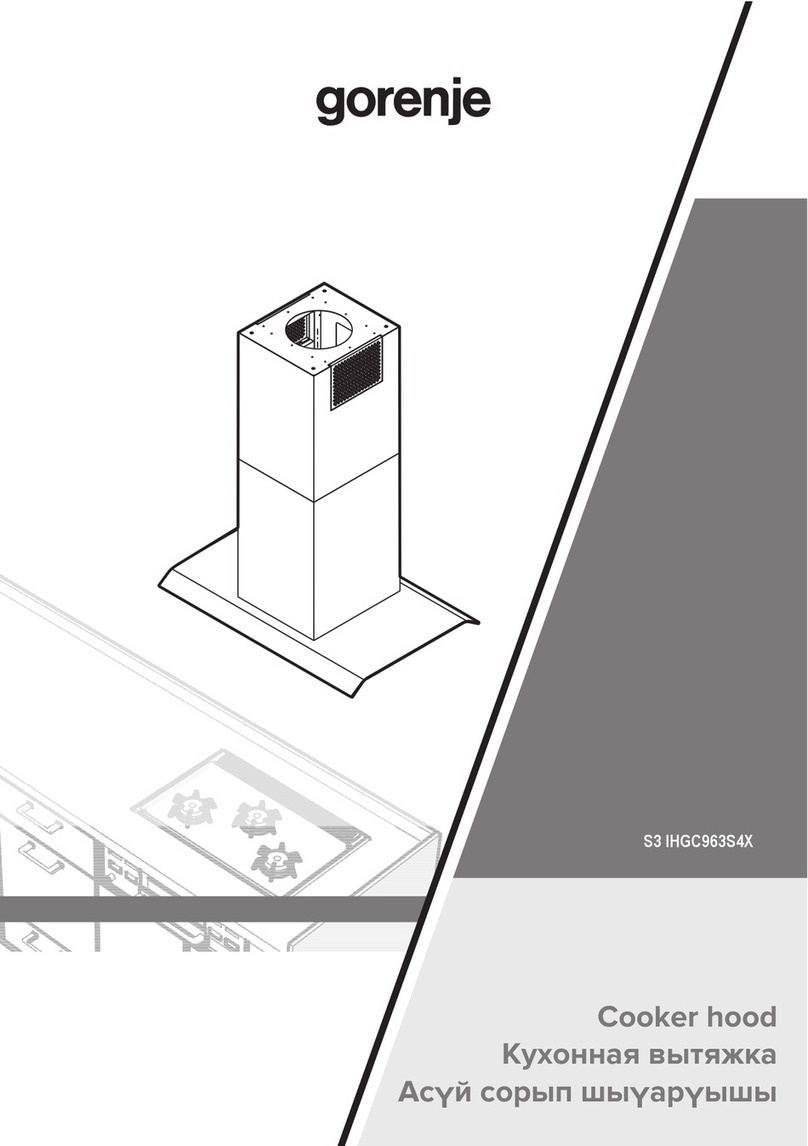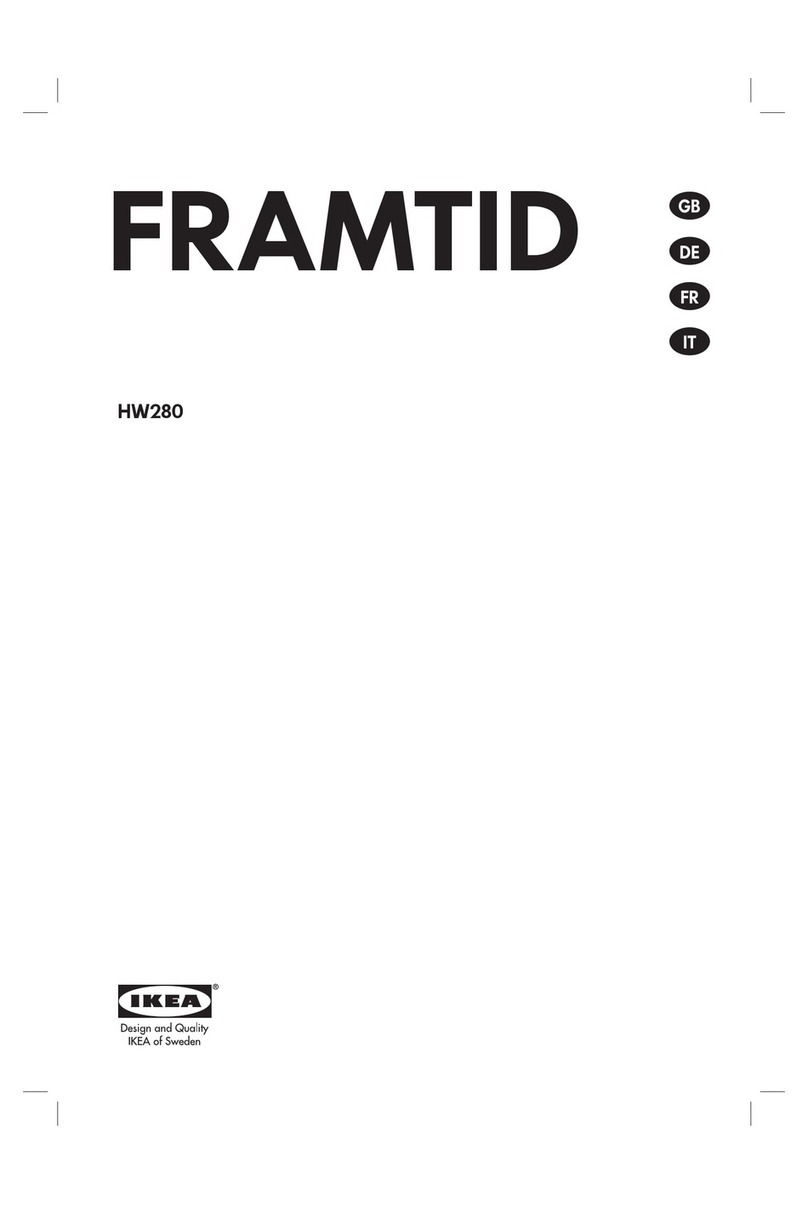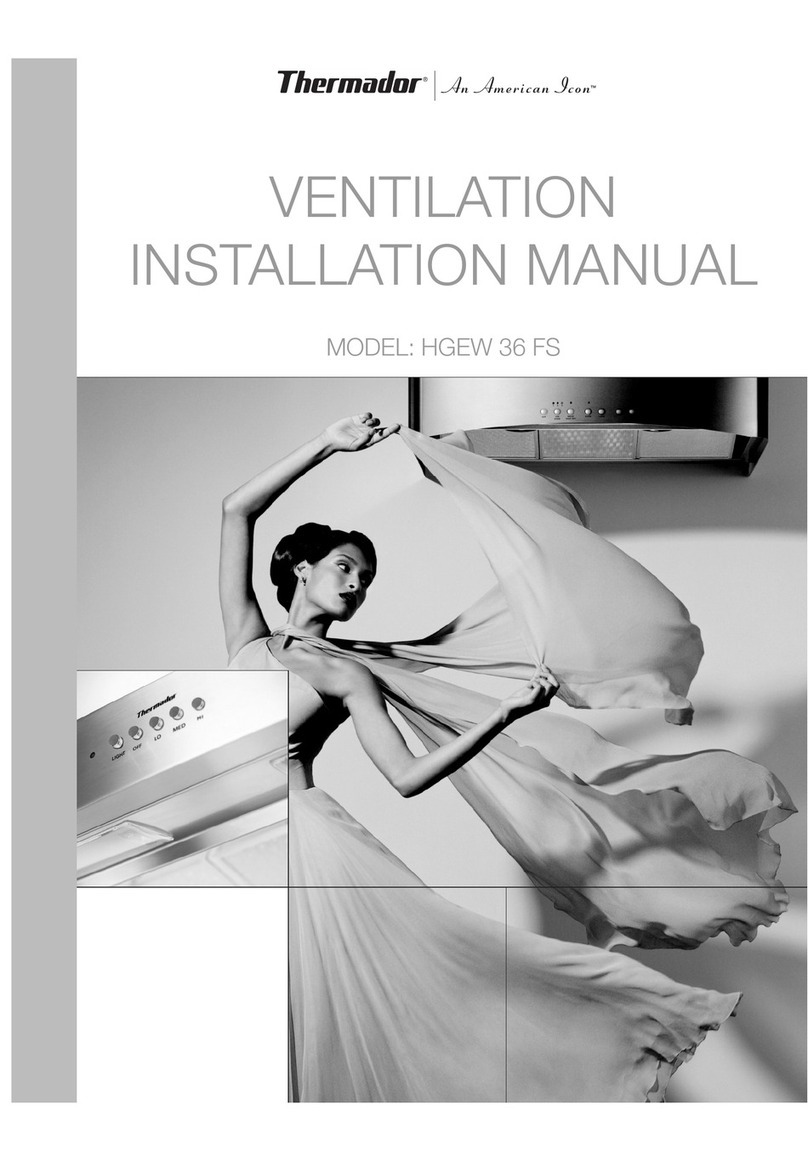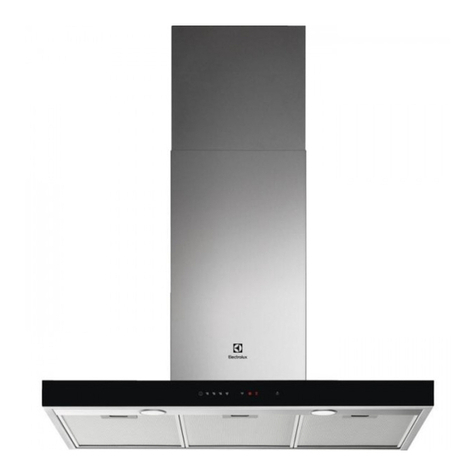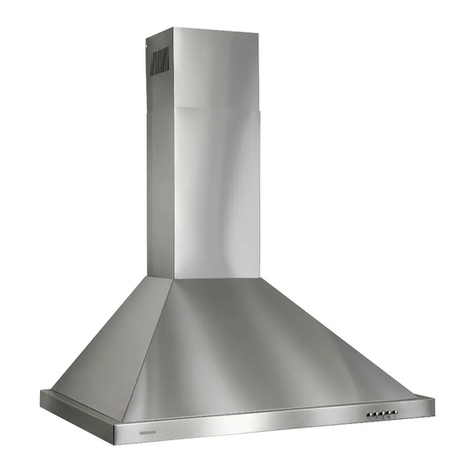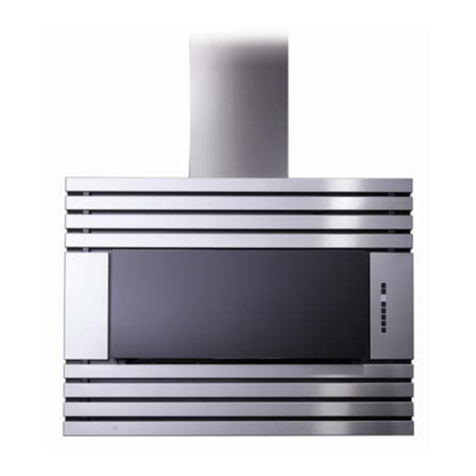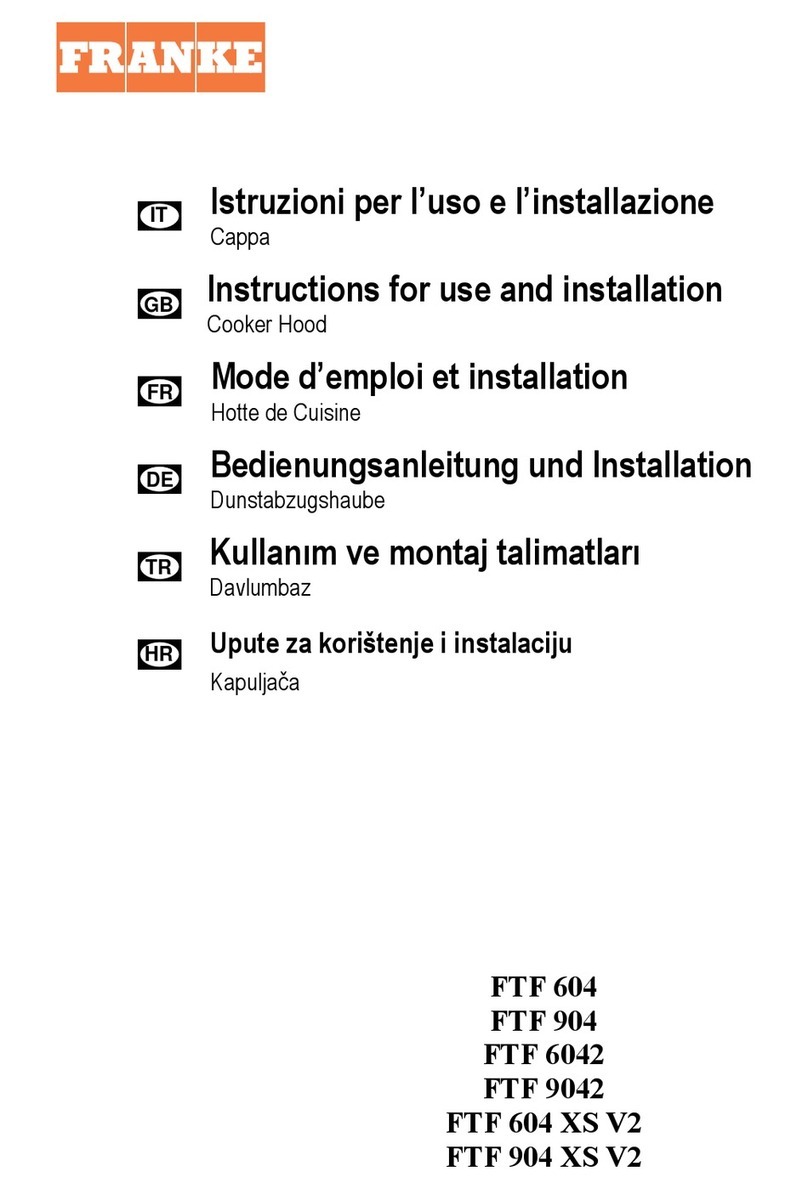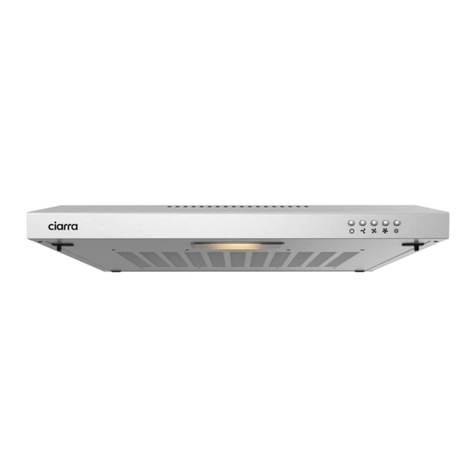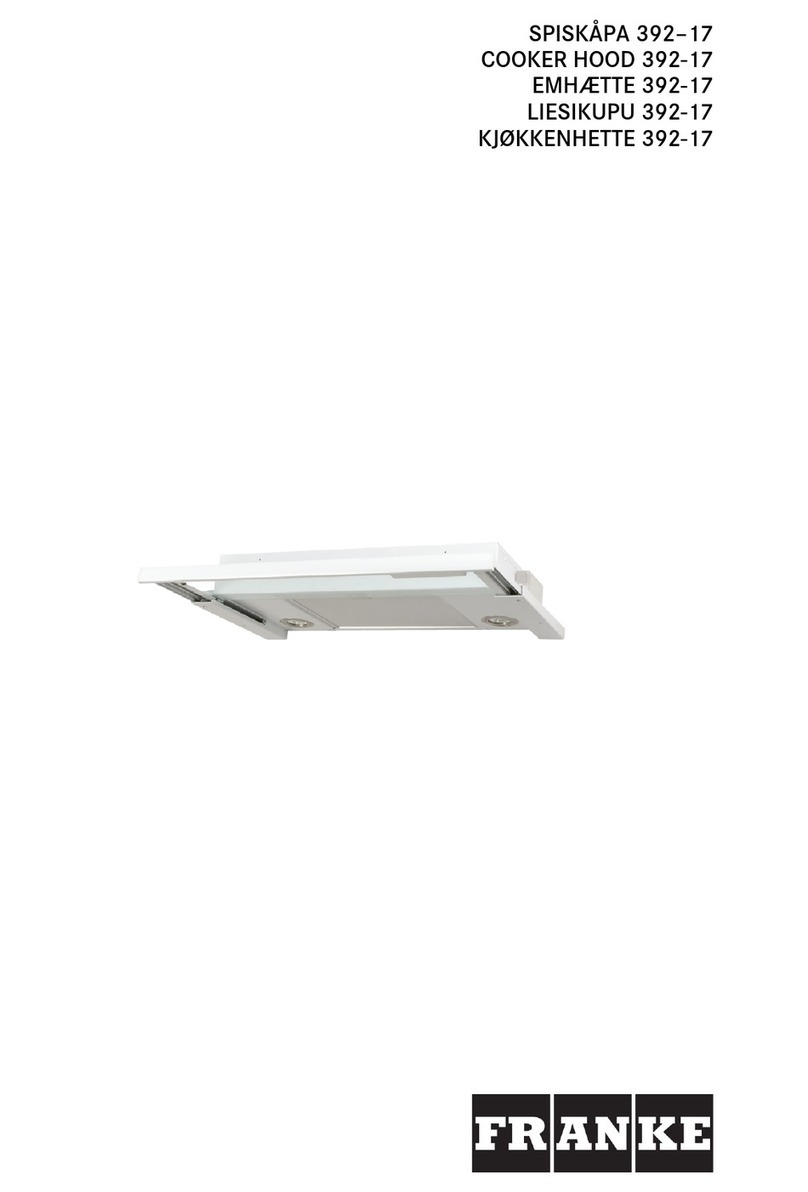
Przeprowadzanie konserwacji ltrów
Filtr można usunąć przez naciśnięcie uchwytu.
Usunąć ltry węglowe z ltrów przeciwtłuszczowych Wysunąć metalową
ramę w tym ltry z węgla aktywnego z ltrami przeciwtłuszczowymi (rys.
3) Zanurzyć ltr (w razie potrzeby kilkukrotnie) we wrzącej wodzie, do
której dodano detergent odtłuszczający lub wyczyścić ltr w zmywarce.
Podczas czyszczenia ltrów w zmywarce do naczyń mogą one ulec
przebarwieniu lub zmatowieniu w wyniku zastosowania soli lub
w detergentów do zmywarki. To zużycie nie jest objęte gwarancją.
Niektóre środki do zmywania naczyń zawierają agresywne komponenty,
które mogą oddziaływać na aluminium, należy więc zwrócić szczególną
uwagę na opis znajdujący się na opakowaniu stosowanego detergentu do
mycia naczyń. Po zakończeniu czynności czyszczenia, przepłukać ltr
pod kranem z ciepłą wodą i pozostawić go do wysuszenia.
Filtry węglowe znajdują się za ltrami przeciwtłuszczowymi.
Wysunąć metalową ramę w tym ltry z węgla aktywnego z ltrami
przeciwtłuszczowymi.
Filtry z węgla drzewnego mogą być czyszczone w zmywarce w wysokiej
temperaturze. Nie stosować detergentów do zmywarek. Zaleca się, aby
nie wkładać do zmywarki niczego poza ltrami węglowymi. W ten sposób
ltry pozostaną czyste. Reaktywować ltry w piekarniku przez 10 minut,
przy temperaturze 100°C.
Zarówno wewnętrzną, jak i zewnętrzną część okapu należy czyścić często
(co najmniej raz w miesiącu).
Nie należy pozwolić na to, aby zanieczyszczenia gromadziły się na
wewnętrznej i zewnętrznej powierzchni okapu.
Do czyszczenia obudowy okapu nie należy używać kwasu lub produktów
podstawowych ani też gąbek ściernych.
Czyścić okap gąbką zwilżoną ciepłą wodą i małą ilością neutralnego
detergentu (np. detergentu do zmywarek) w celu usunięcia ewentualnych
cząstek tłuszczu.
Opłukać okap wilgotną szmatką, starannie usuwając wszystek detergent
zgodnie z kierunkiem polerowania powierzchni ze stali. Suszenie okapu
jest bardzo ważne, szczególnie w miejscach, gdzie woda jest szczególnie
W chwili działania samoczynnego wyłączania możliwa jest modykacja
wcześniej zaprogramowanej prędkości.
Jeżeli wybór czasu samoczynnego wyłączenia się odpowiada ustawionej
prędkości, wówczas dioda prędkości miga, w przeciwnym wypadku dioda
świeci się światłem stałym.
Przypomnienie o potrzebie przeprowadzenia konserwacji ltrów
Aluminiowe ltry przeciwtłuszczowe
W chwili gdy okap jest wyłączony po kolejnych 30 godzinach jego
eksploatacji, wszystkie diody przycisków prędkości włączają się świecąc
się światłem stałym przez 30 sekund, aby przypomnieć, że aluminiowe
ltry przeciwtłuszczowe wymagają czyszczenia. Aby wyzerować timer
przytrzymać wciśnięty przycisk T1 przy wyłączonym pochłaniaczu,
w przeciwnym razie timer pozostanie ustawiony na 30 godzin eksploatacji
i przypomnienie powtórzy się, w chwili, gdy okap zostanie wyłączany. Filtr
węglowy (do ltrowania okapów)
W chwili gdy okap jest wyłączony po kolejnych 60 godzinach jego
eksploatacji, wszystkie diody migają przez 30 sekund, aby przypomnieć,
że ltr węglowy wymaga czyszczenia. Aby wyzerować timer przytrzymać
wciśniętyprzyciskT1przywyłączonympochłaniaczu,wprzeciwnymrazie
timer pozostanie ustawiony na 120 godzin eksploatacji i przypomnienie
powtórzy się, w chwili, gdy okap zostanie wyłączany.
W chwili gdy okap jest wyłączony po kolejnych 480 godzinach jego
eksploatacji, wszystkie diody migają przez 30 sekund, aby przypomnieć,
że ltr węglowy wymaga czyszczenia.
Aby wyzerować timer przytrzymać wciśnięty przycisk T1 przy
wyłączonym pochłaniaczu, w przeciwnym razie timer pozostanie
ustawiony na 120 godzin eksploatacji i przypomnienie powtórzy się,
w chwili, gdy okap zostanie wyłączany.
KONSERWACJA
Zawsze przed przystąpieniem do czynności konserwacji lub
czyszczenia należy odłączać okap od zasilania.


